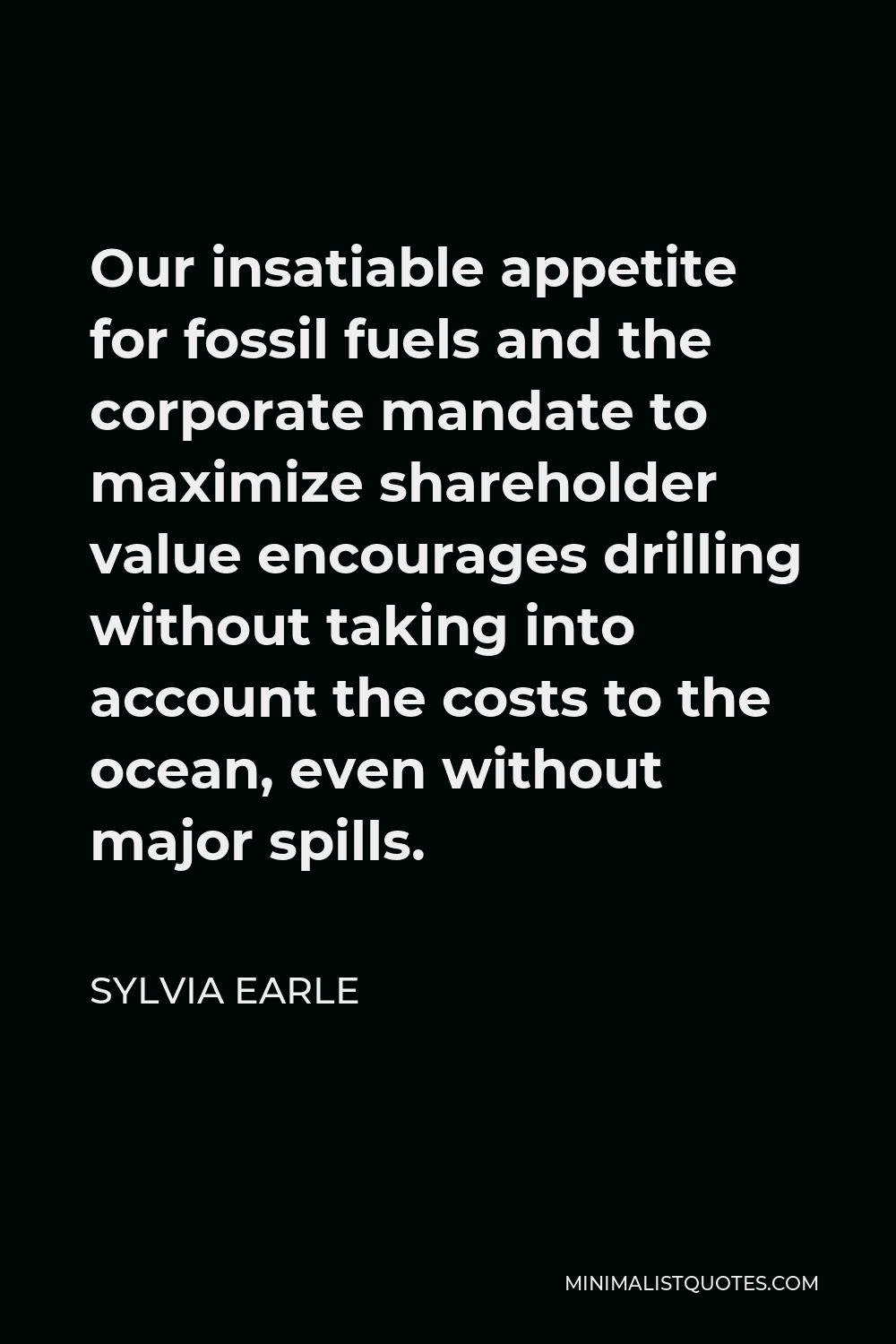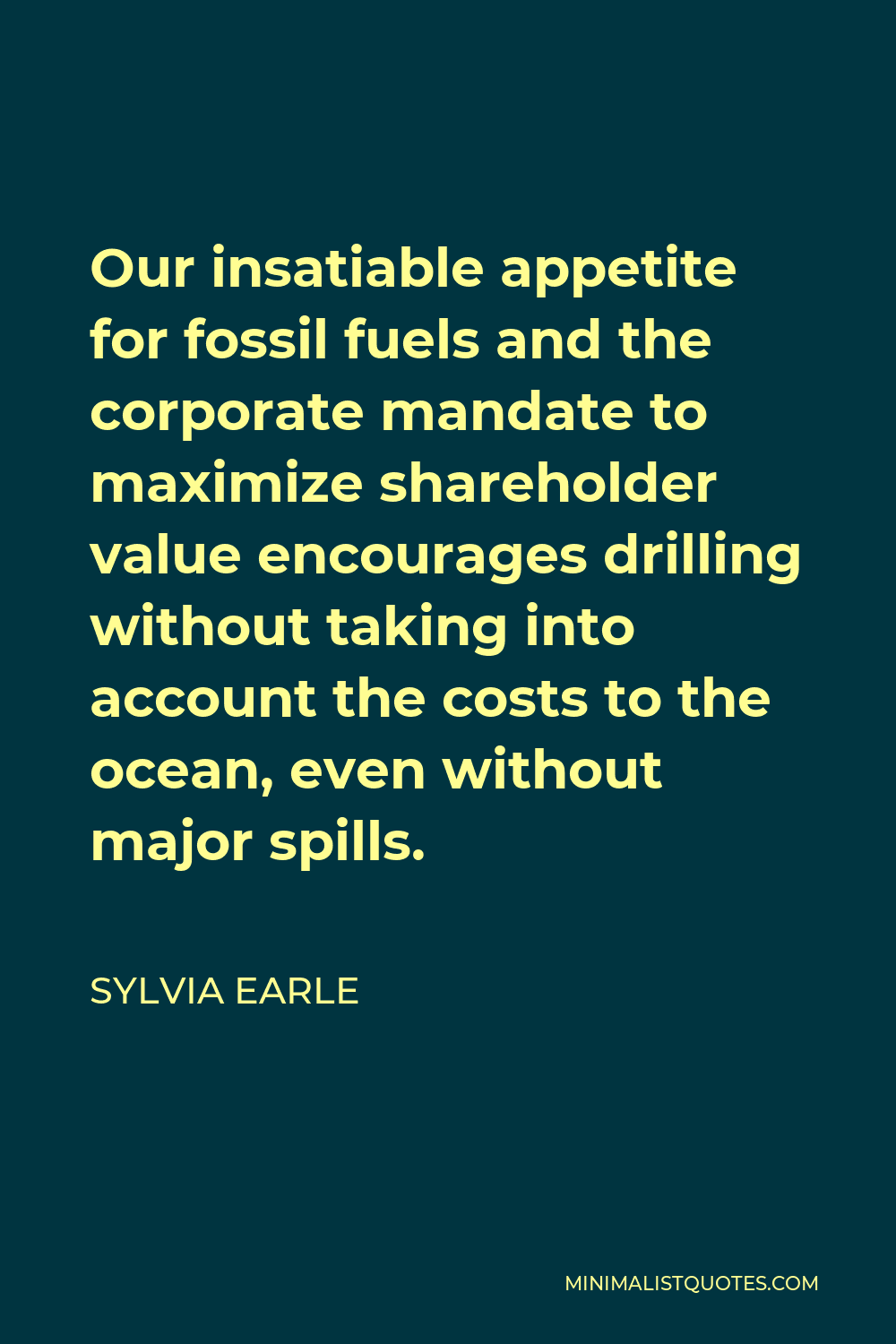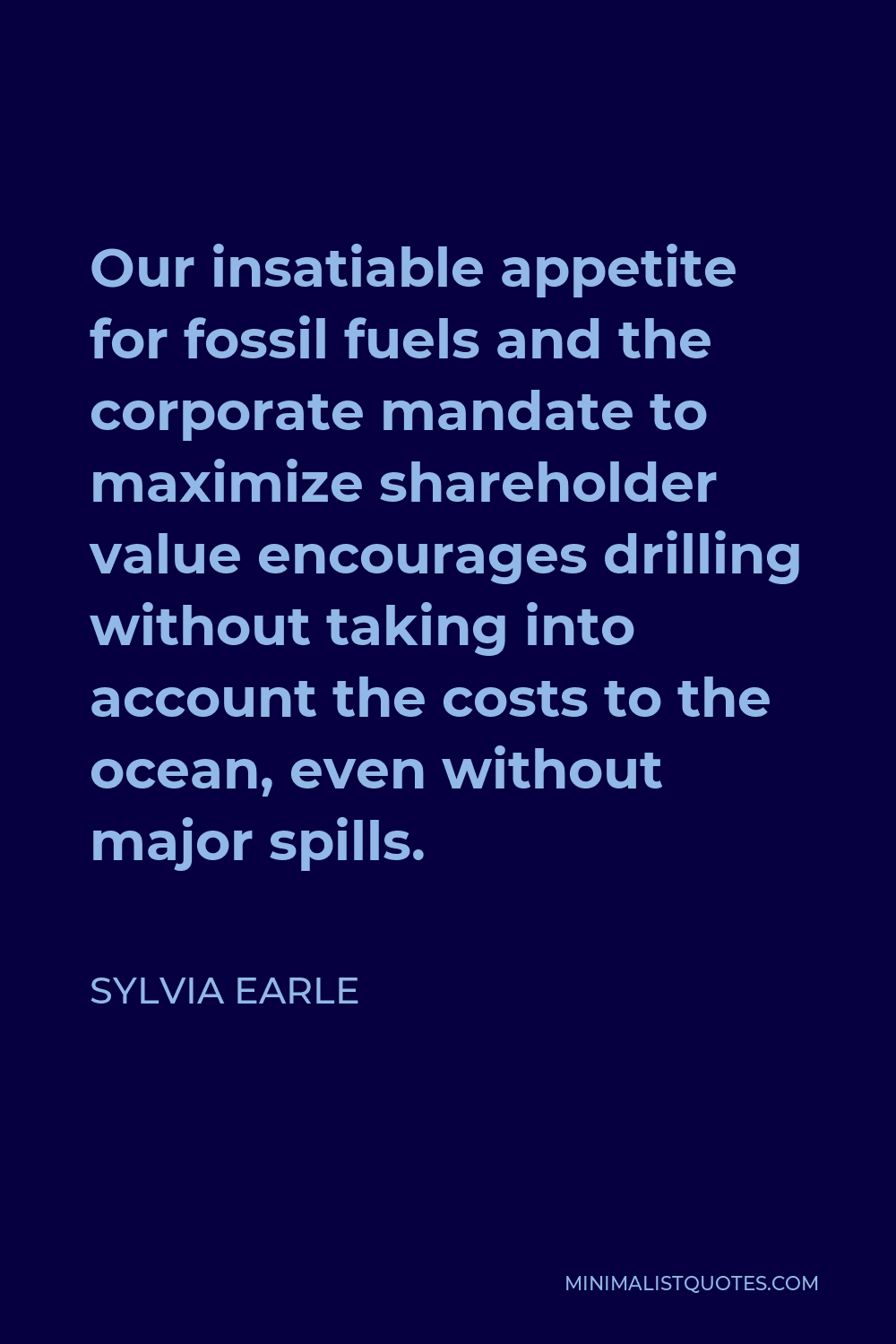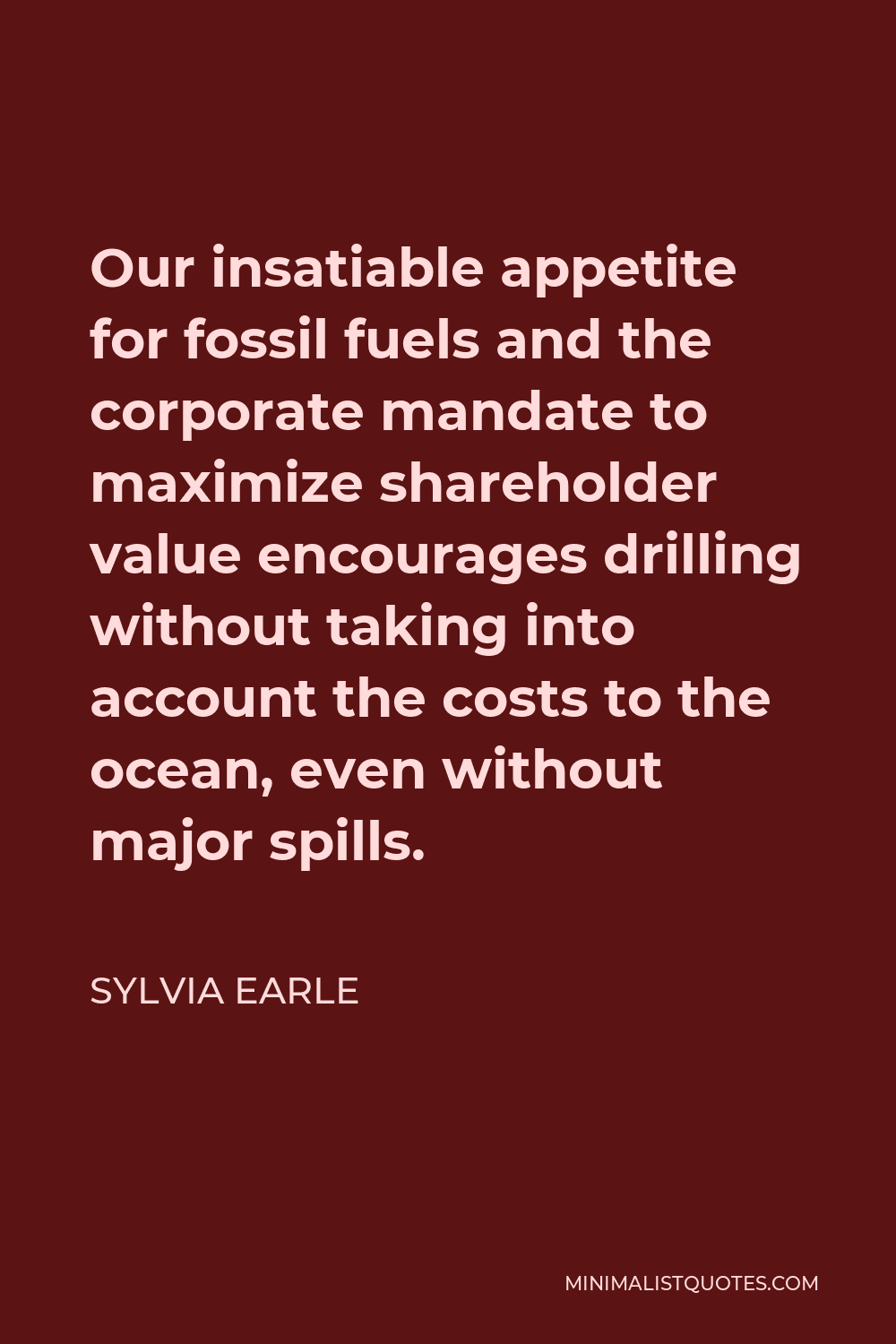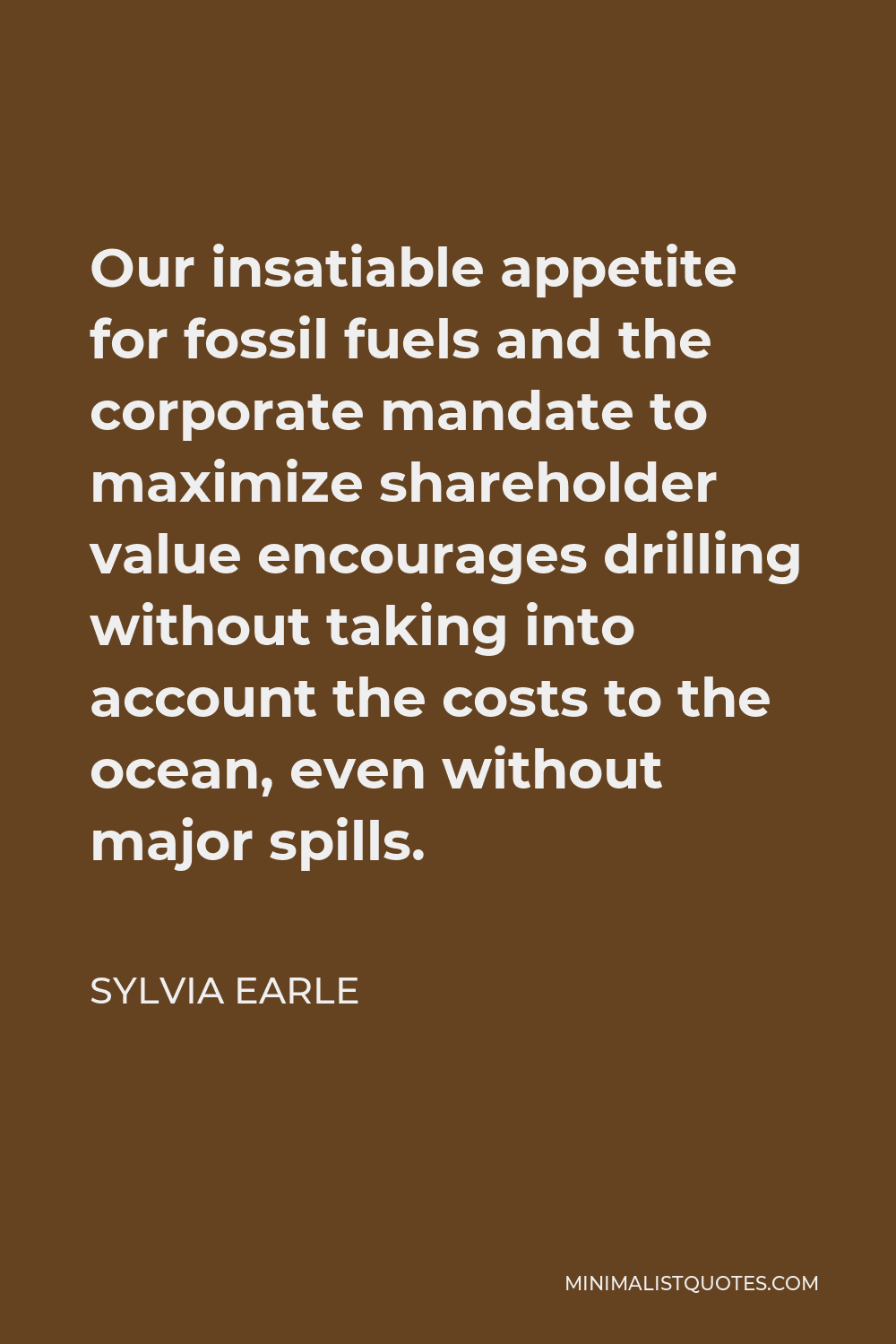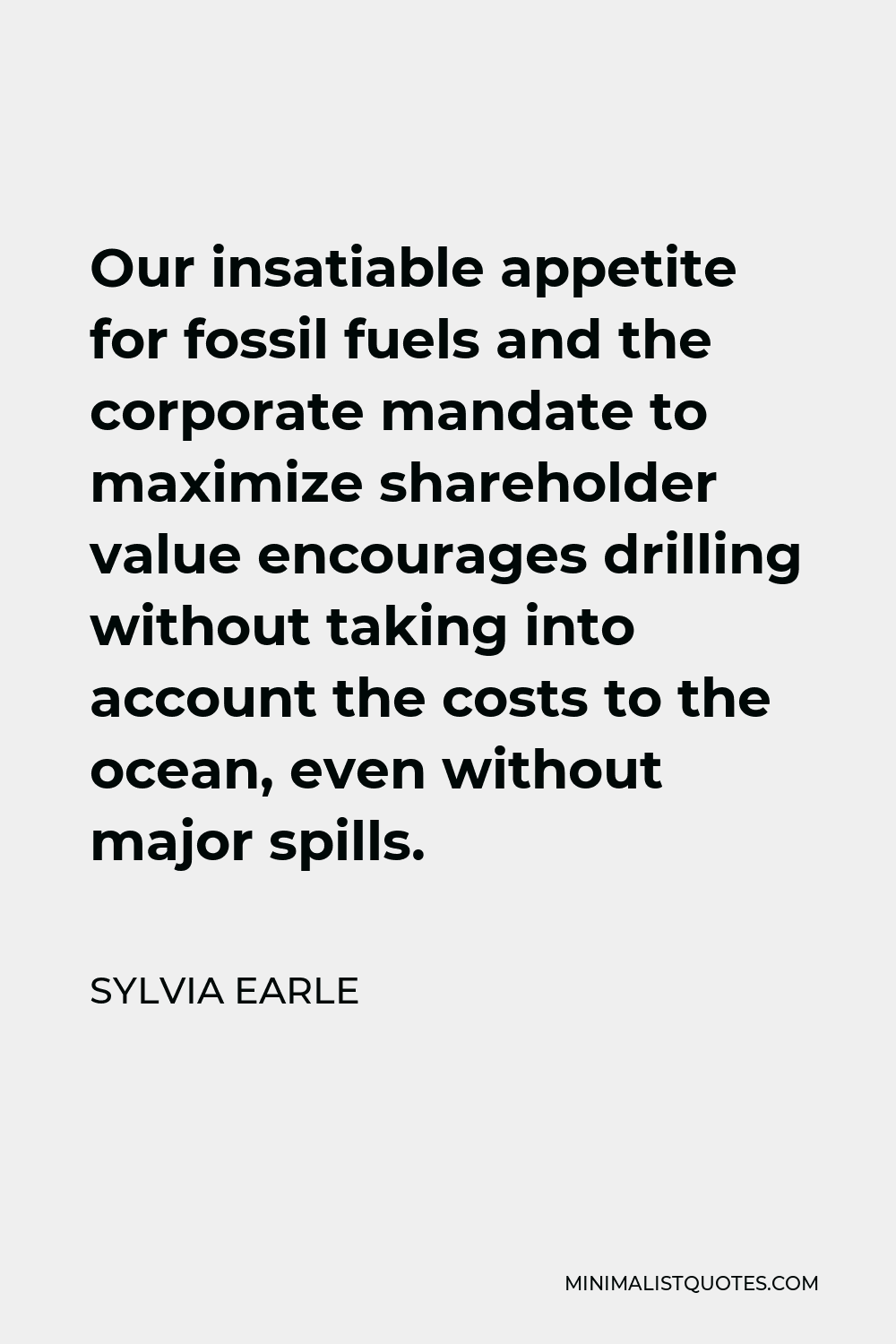All through college, I had frequently been the only girl in a science class – which wasn’t such a bad deal.
SYLVIA EARLEOur insatiable appetite for fossil fuels and the corporate mandate to maximize shareholder value encourages drilling without taking into account the costs to the ocean, even without major spills.
More Sylvia Earle Quotes
-





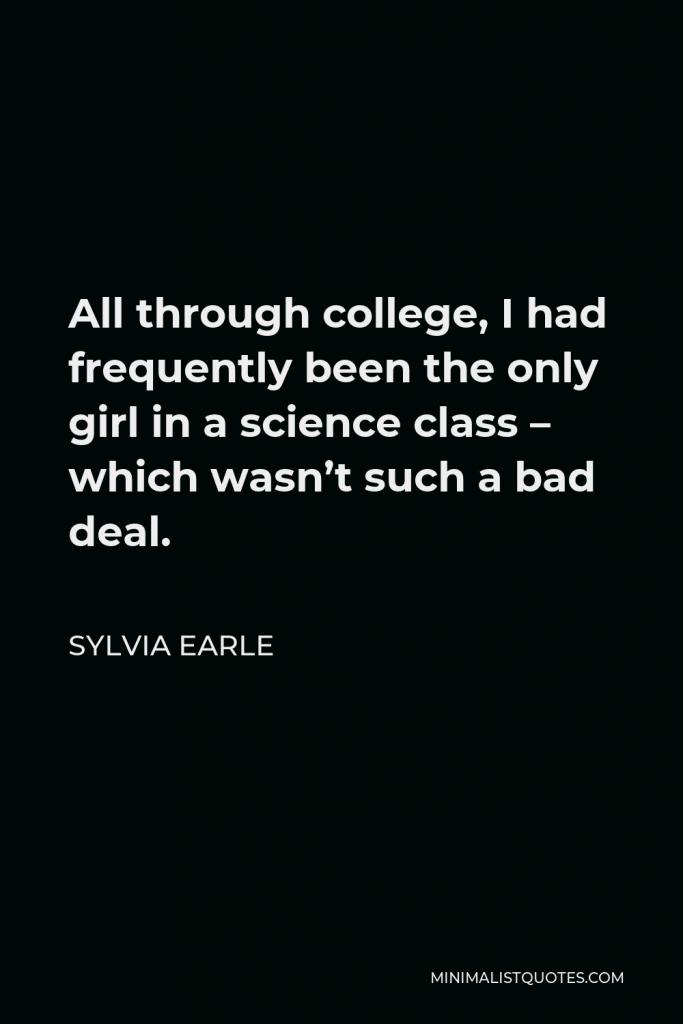

-





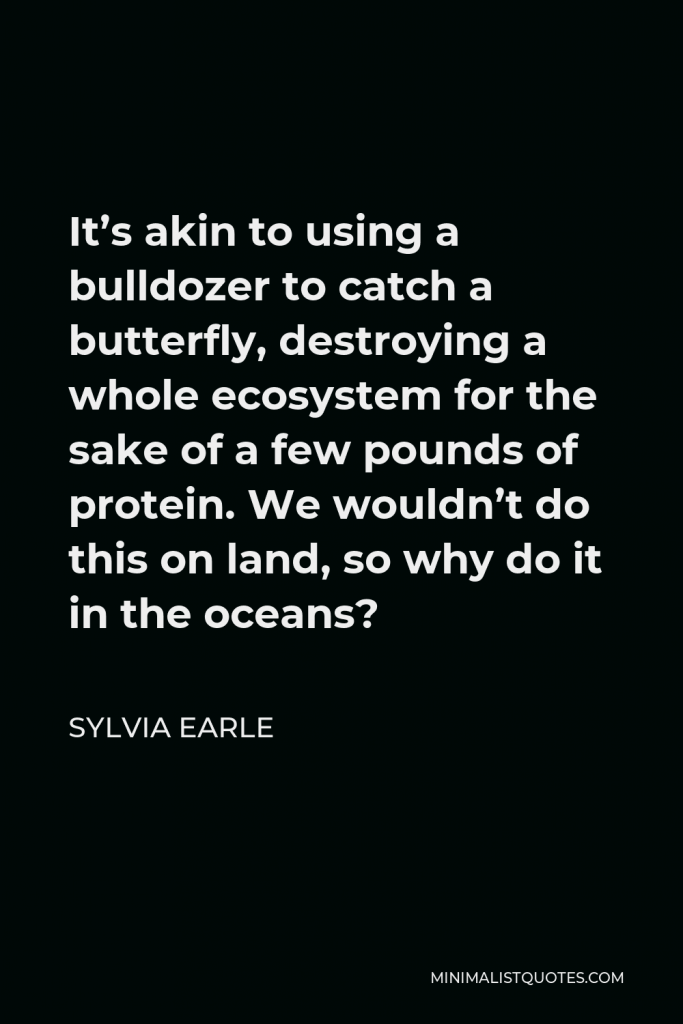

It’s akin to using a bulldozer to catch a butterfly, destroying a whole ecosystem for the sake of a few pounds of protein. We wouldn’t do this on land, so why do it in the oceans?
SYLVIA EARLE -







I love music of all kinds, but there’s no greater music than the sound of my grandchildren laughing; my kids, too.
SYLVIA EARLE -





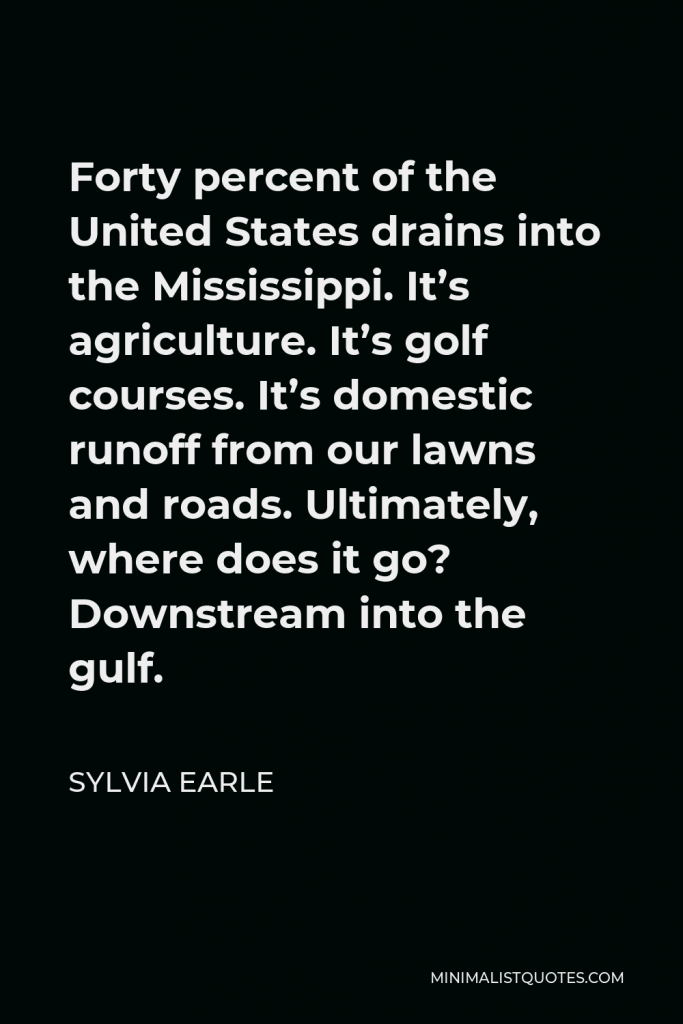

Forty percent of the United States drains into the Mississippi. It’s agriculture. It’s golf courses. It’s domestic runoff from our lawns and roads. Ultimately, where does it go? Downstream into the gulf.
SYLVIA EARLE -





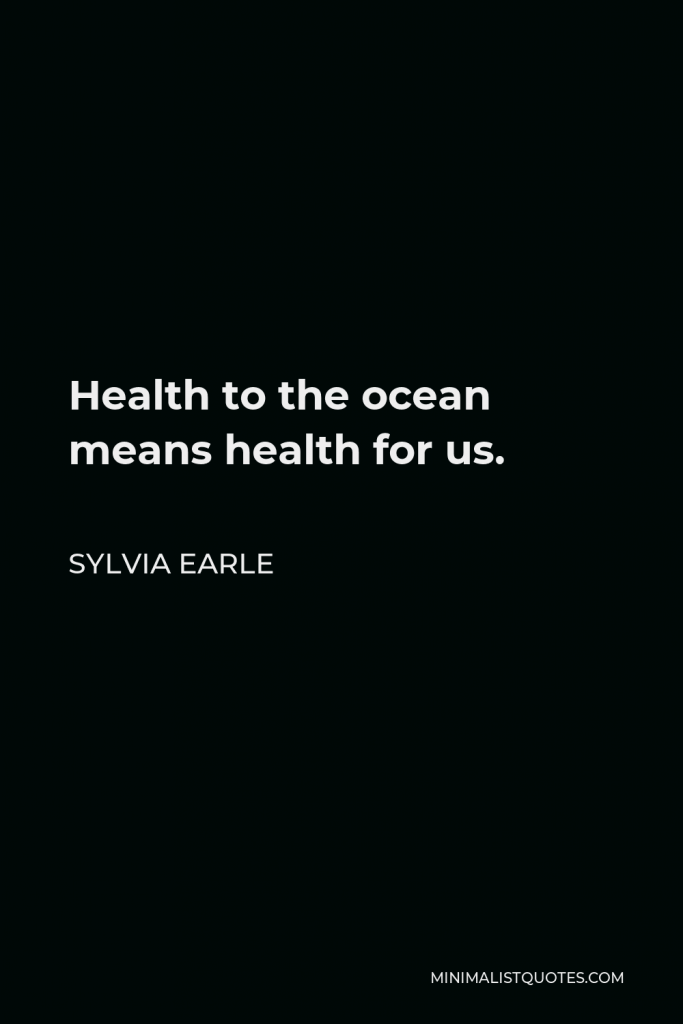

Health to the ocean means health for us.
SYLVIA EARLE -





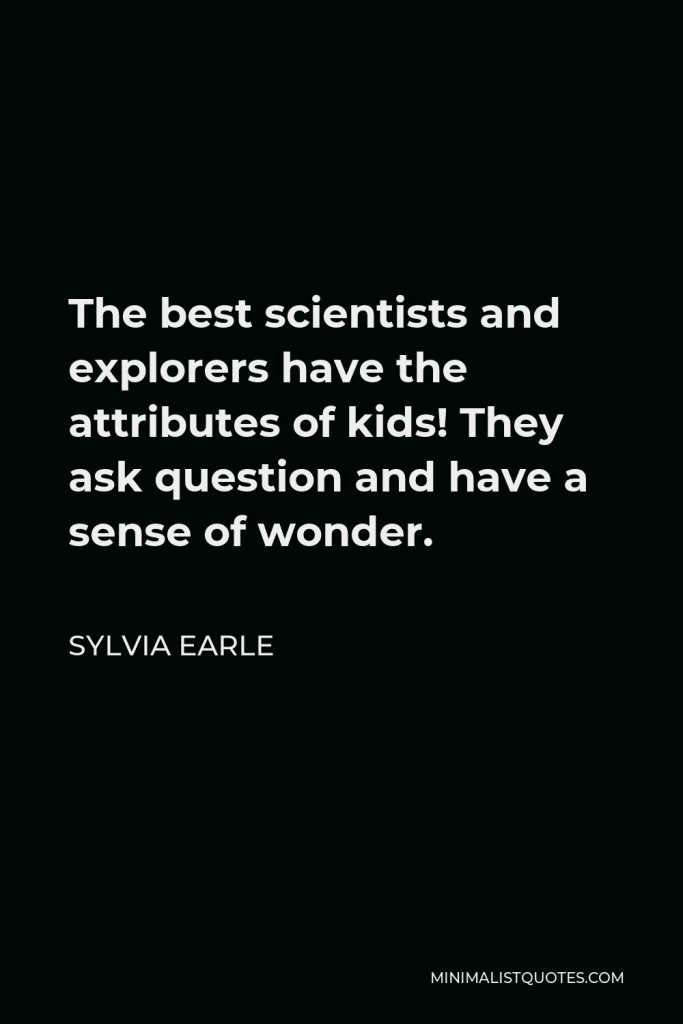

The best scientists and explorers have the attributes of kids! They ask question and have a sense of wonder.
SYLVIA EARLE -





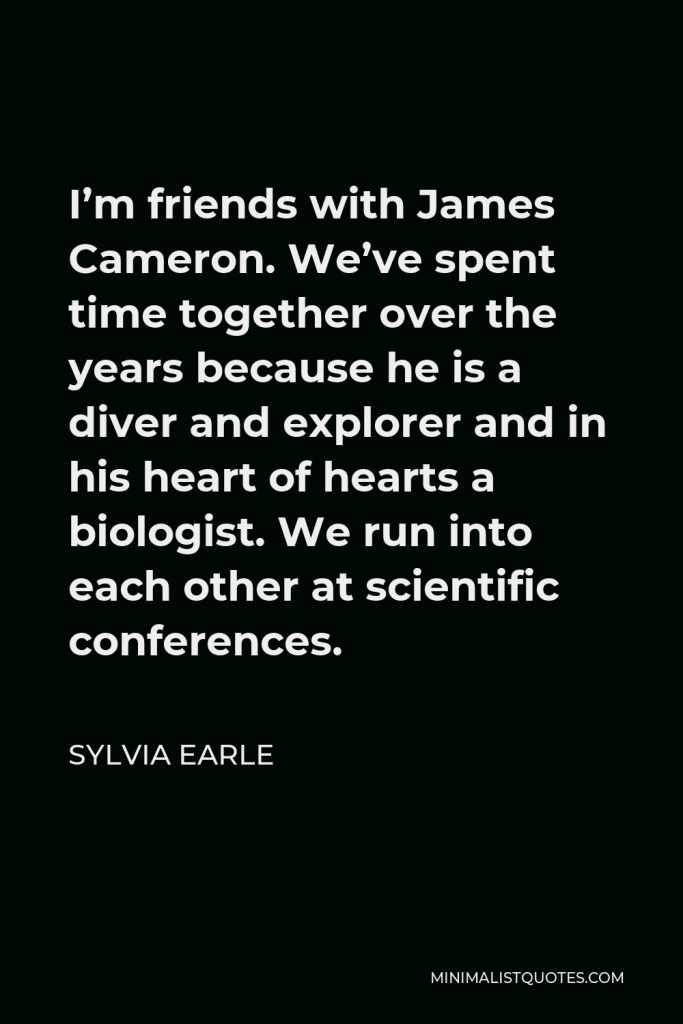

I’m friends with James Cameron. We’ve spent time together over the years because he is a diver and explorer and in his heart of hearts a biologist. We run into each other at scientific conferences.
SYLVIA EARLE -





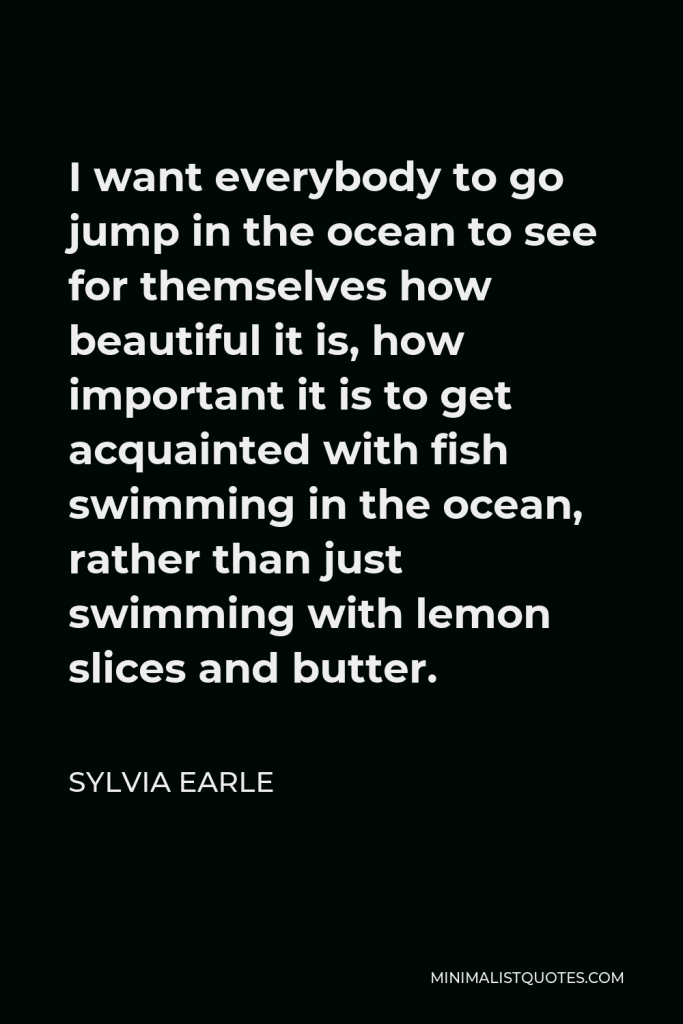

I want everybody to go jump in the ocean to see for themselves how beautiful it is, how important it is to get acquainted with fish swimming in the ocean, rather than just swimming with lemon slices and butter.
SYLVIA EARLE -





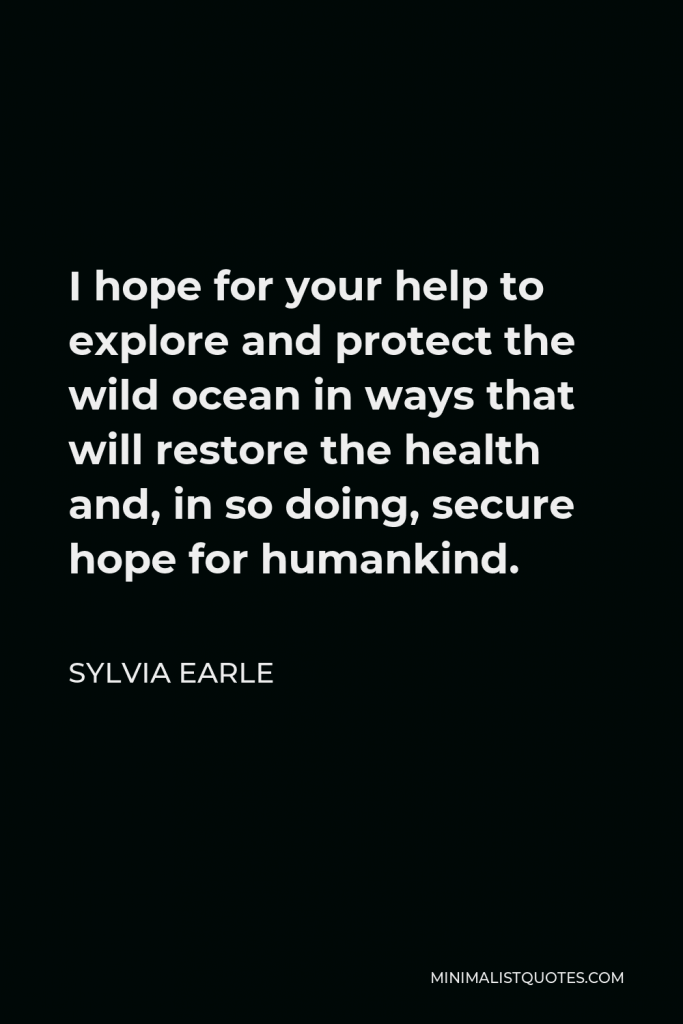

I hope for your help to explore and protect the wild ocean in ways that will restore the health and, in so doing, secure hope for humankind.
SYLVIA EARLE -





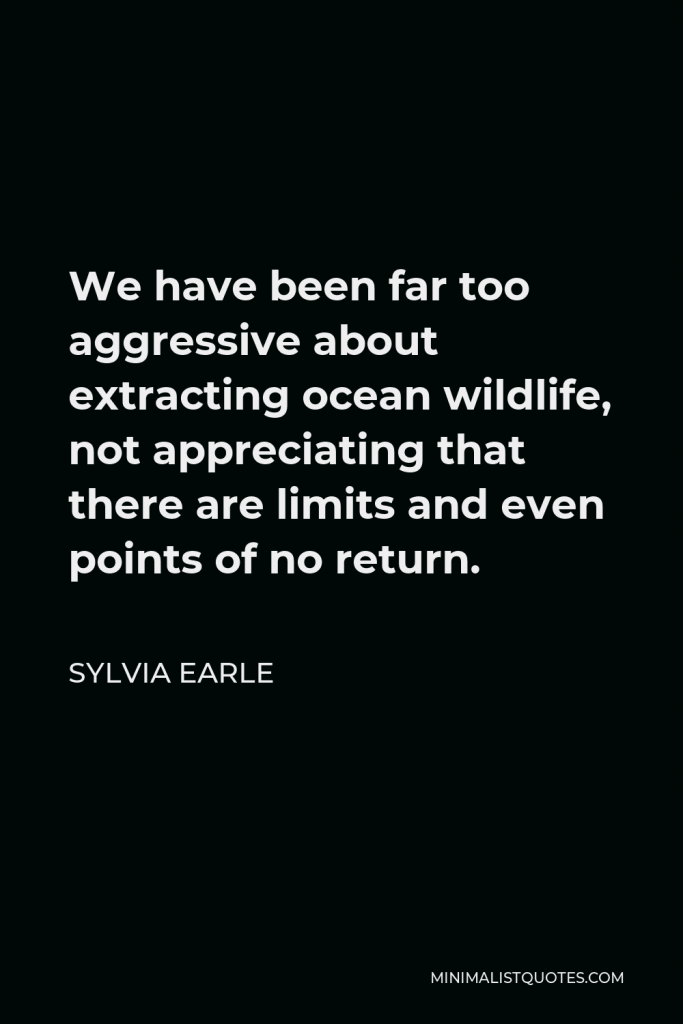

We have been far too aggressive about extracting ocean wildlife, not appreciating that there are limits and even points of no return.
SYLVIA EARLE -





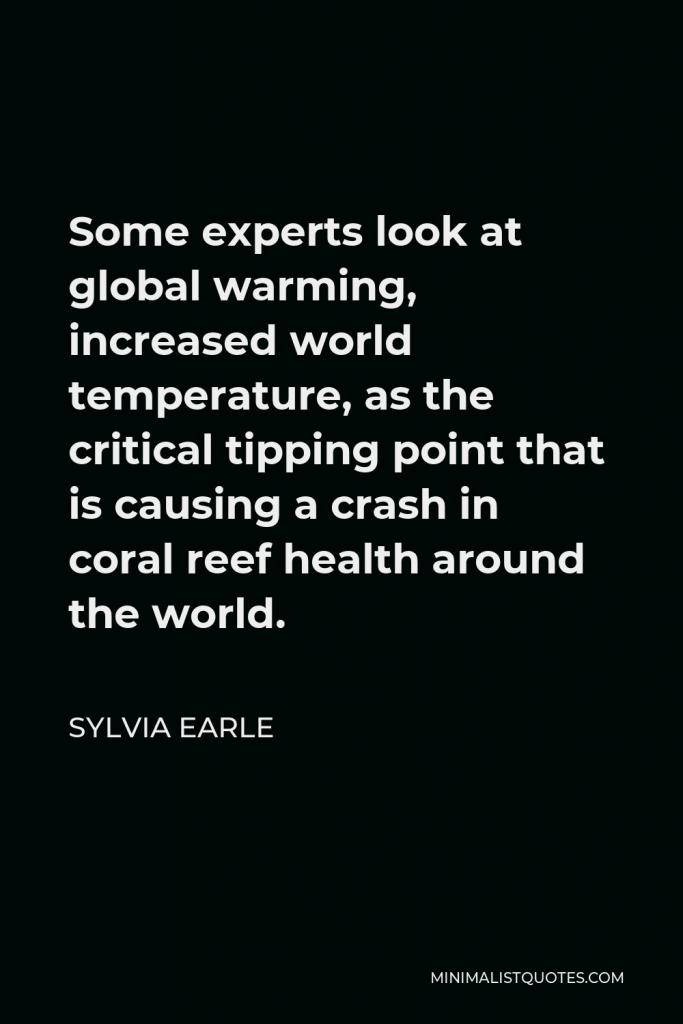

Some experts look at global warming, increased world temperature, as the critical tipping point that is causing a crash in coral reef health around the world.
SYLVIA EARLE -





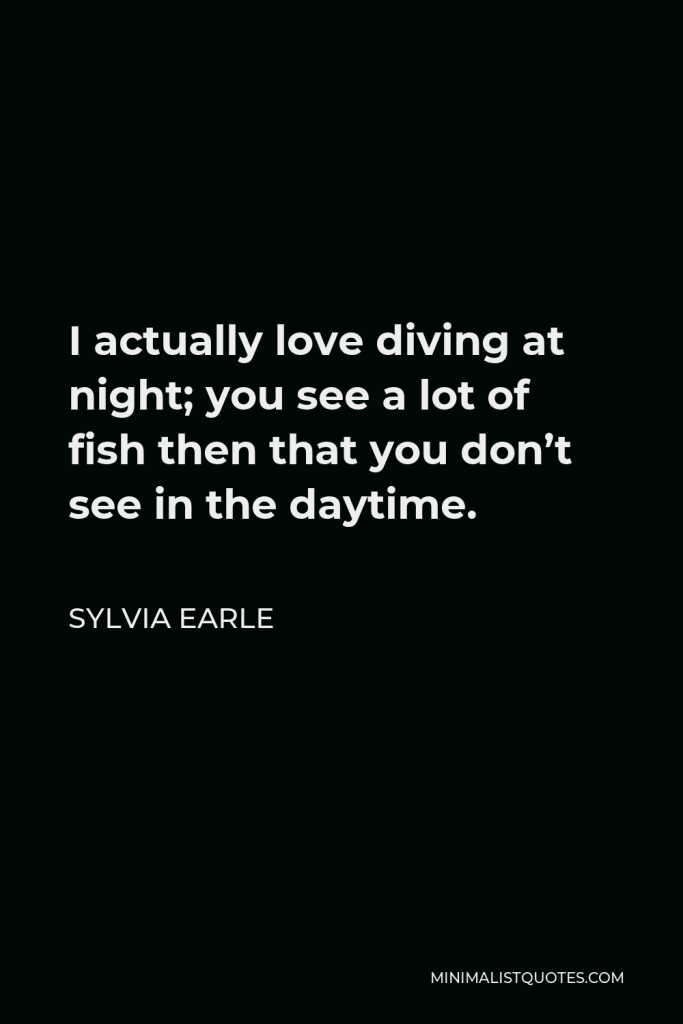

I actually love diving at night; you see a lot of fish then that you don’t see in the daytime.
SYLVIA EARLE -





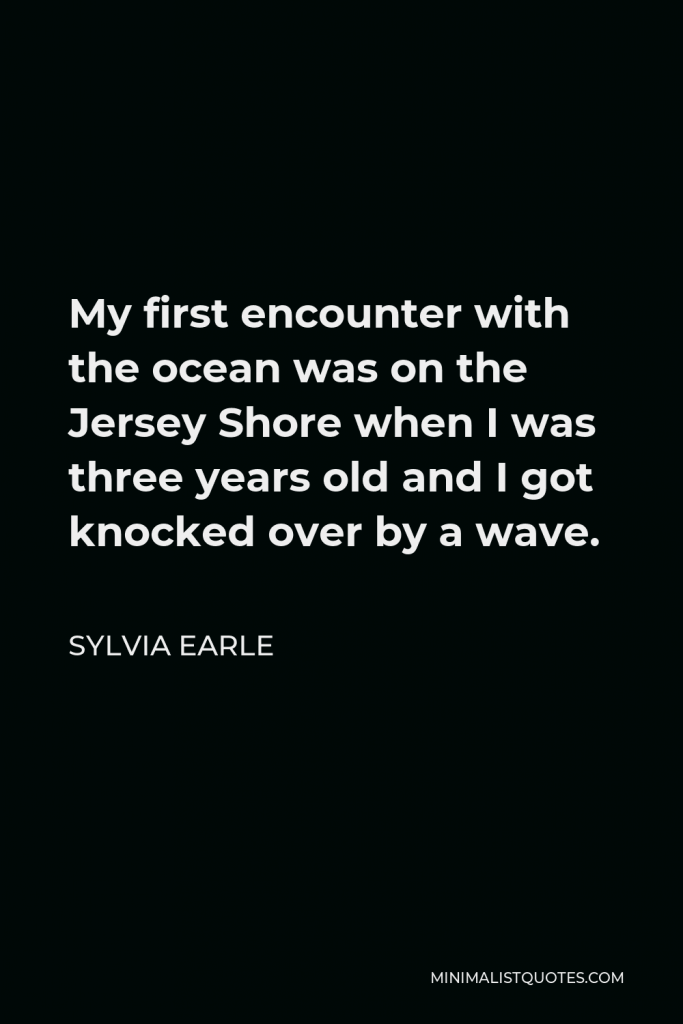

My first encounter with the ocean was on the Jersey Shore when I was three years old and I got knocked over by a wave.
SYLVIA EARLE -





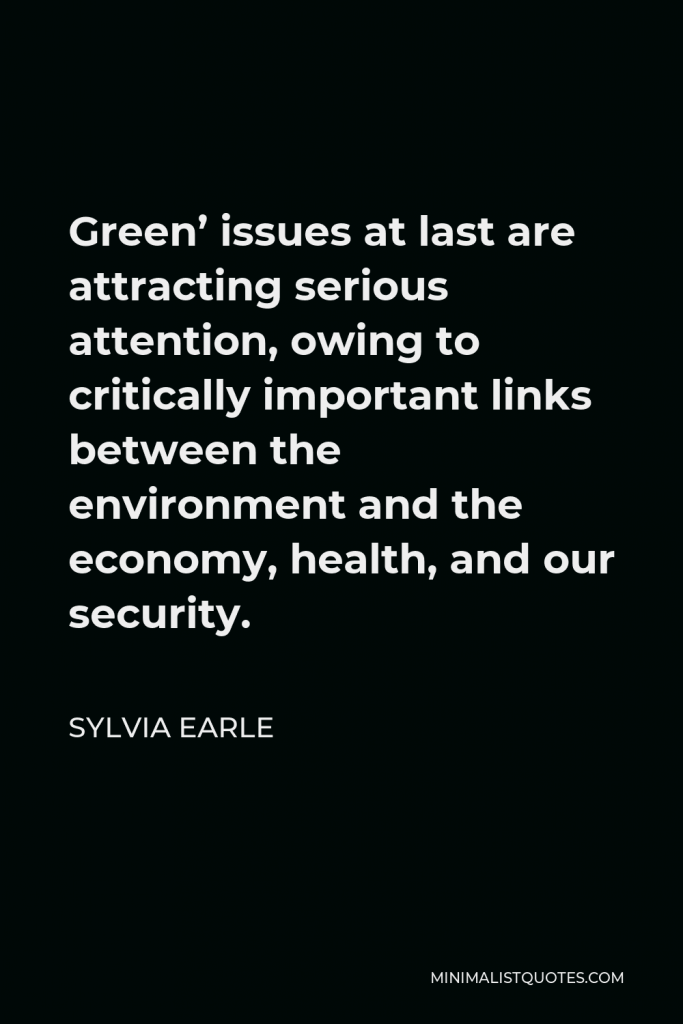

Green’ issues at last are attracting serious attention, owing to critically important links between the environment and the economy, health, and our security.
SYLVIA EARLE -





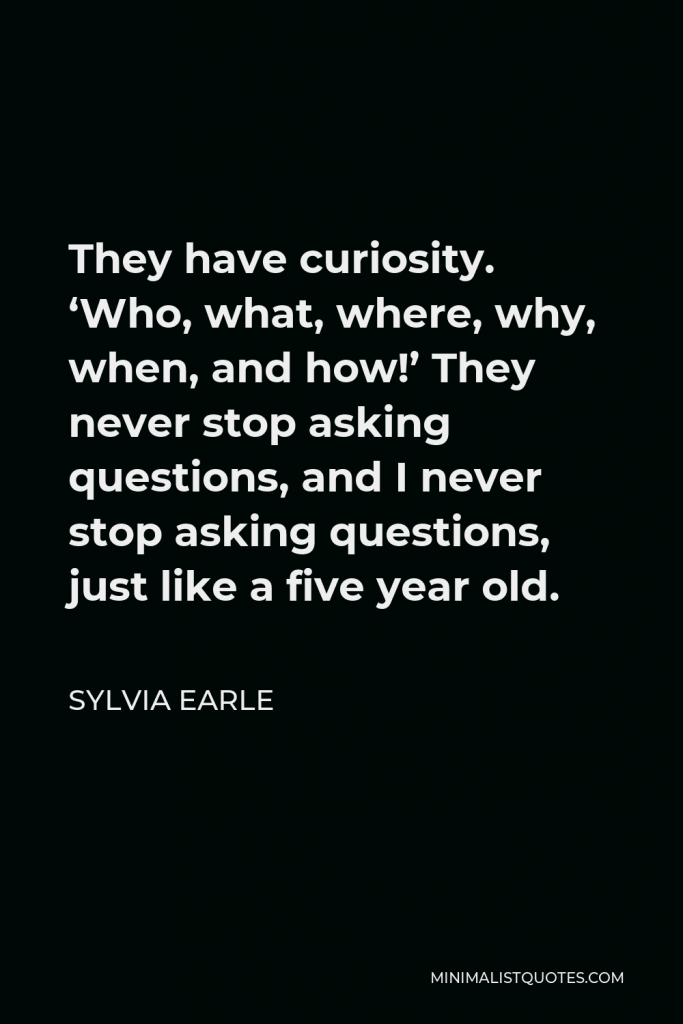

They have curiosity. ‘Who, what, where, why, when, and how!’ They never stop asking questions, and I never stop asking questions, just like a five year old.
SYLVIA EARLE -







A lumberman will look at a forest and see so many board feet of lumber. I see a living city.
SYLVIA EARLE
